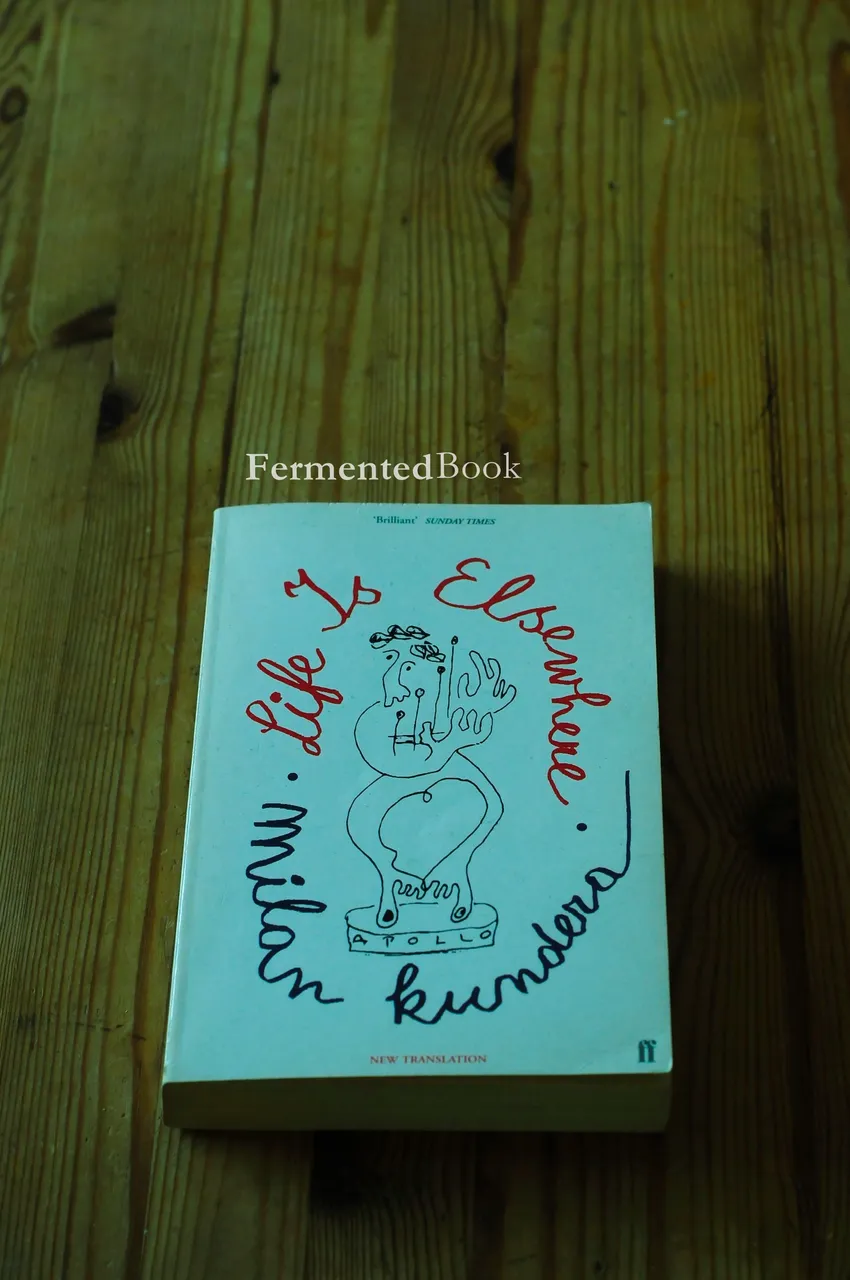
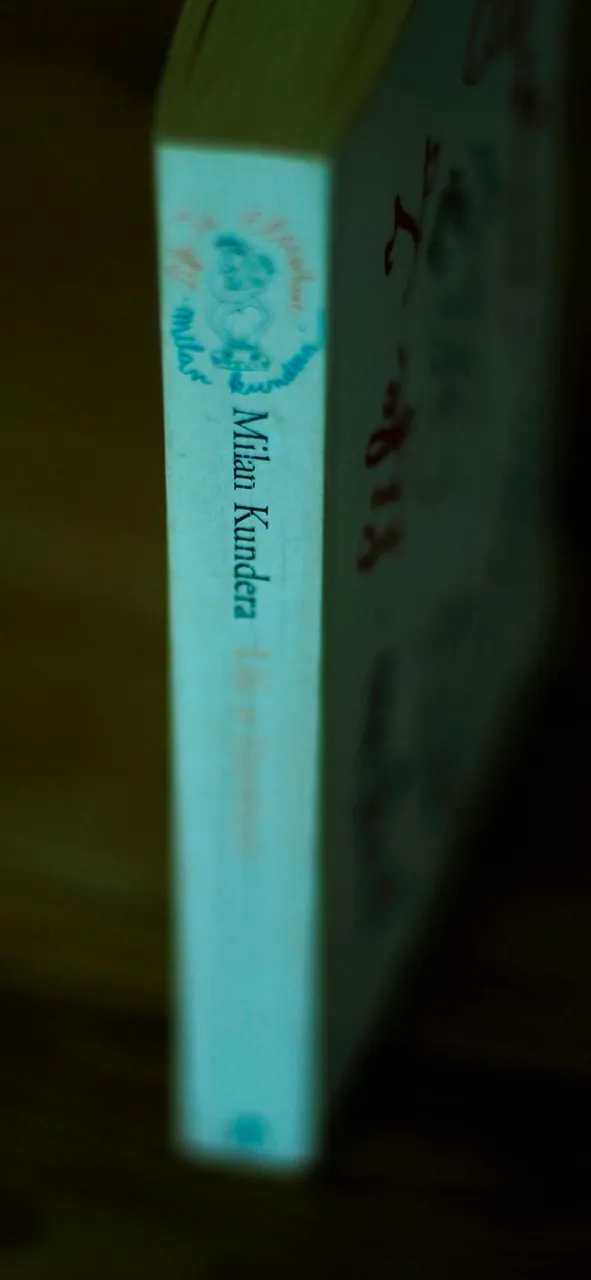
There is something incredibly beautiful and satisfying in picking up old books. It is not just the smell, but there is some kind of aura around them. The fading and ageing pages, the words that have been hiding for so many years, hidden beneath the pages, burning to be read, to be touched, to be opened up so that new life can be breathed into them.
Few second-hand books bring so much joy to me as classics, philosophy books, and obscure authors that few dare to open and read.
I stumbled upon several books by Milan Kundera one early morning when my fiance and I went to a local market. I still had some warm coffee in my hands, it was an early morning outing, and everything was cold. I saw a stand with loads of second-hand books, and I knew I just had to go there. Beneath piles of other books, I found three or four of Kundera sitting unread underneath other books that did not stand the weight of this classic writer.
Like most philosophy students, I have heard of, and own, a copy of the The Unbearable Lightness of Being. And like most readers, I have yet to read this book. My book to read list is getting longer by the day, but at least I am reading a couple of books a month.
That said, I recently finished the book Life is Elsewhere by Kundera, and I have to say, this book was something else. But before getting into the book, a very important note and warning:
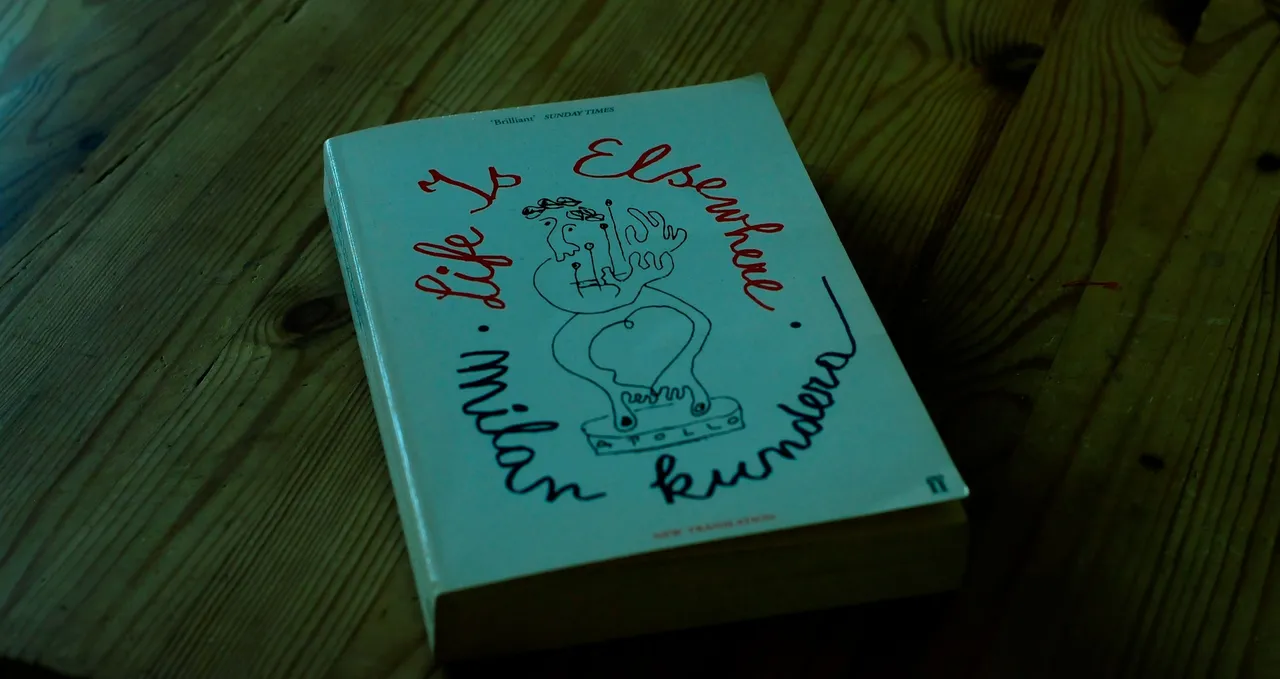
The Poet is Born, The Poet Discovers Sex, The Poet Dies
This book is just as much about the poet who discovers everything in life as it is about the process of a mother who needs to cope with the loss of a child, not in the sense of death but in the sense of the child leaving her house to start their own life. This book is about loss and discovery, and the interplay between the two. It is also about the war, and identity, and everything that goes with this.
Another word of warning. People think that there is sometimes an objective meaning and truth to a work of art. But coming from the post-modern position, this seems oddly reductive and restrictive. When one considers that a work of art can have multiple meanings, especially for people approaching a work from radically different angles and perspectives, new worlds are opened up, and even new meanings might come from this alterity.
That said, I come from the angle of someone not well versed in European and World War histories. I hail from the Southern tip of Africa, and I read this work devoid of this historical aspect, even though this work directly speaks to this history with the author hailing from and writing in this history and context. My reading of this book will drastically differ from someone well versed in these perspectives.
The first sentence struck me when I read the book. It directly talks about the poet, even as a young child the boy is referred to as the poet. The god-like perspective of the writer is something to get used to, but as soon as this little side note is accepted, the story unfolds in a strange dream-like nature. We follow mostly the perspective of the mother of the poet and the poet himself, and some other characters who never really feature again. And this adds to the dream-like nature of the book. While this might be odd to the modern reader, I am sure there was a reason for doing this. (Well probably not. According to the Wikipedia page of the book, Kundera was not satisfied with only 6 chapters in the book, so he added another one. This added chapter in the book adds nothing really, and only now do I understand why it was added. This little detail adds even less to the value of the story.)
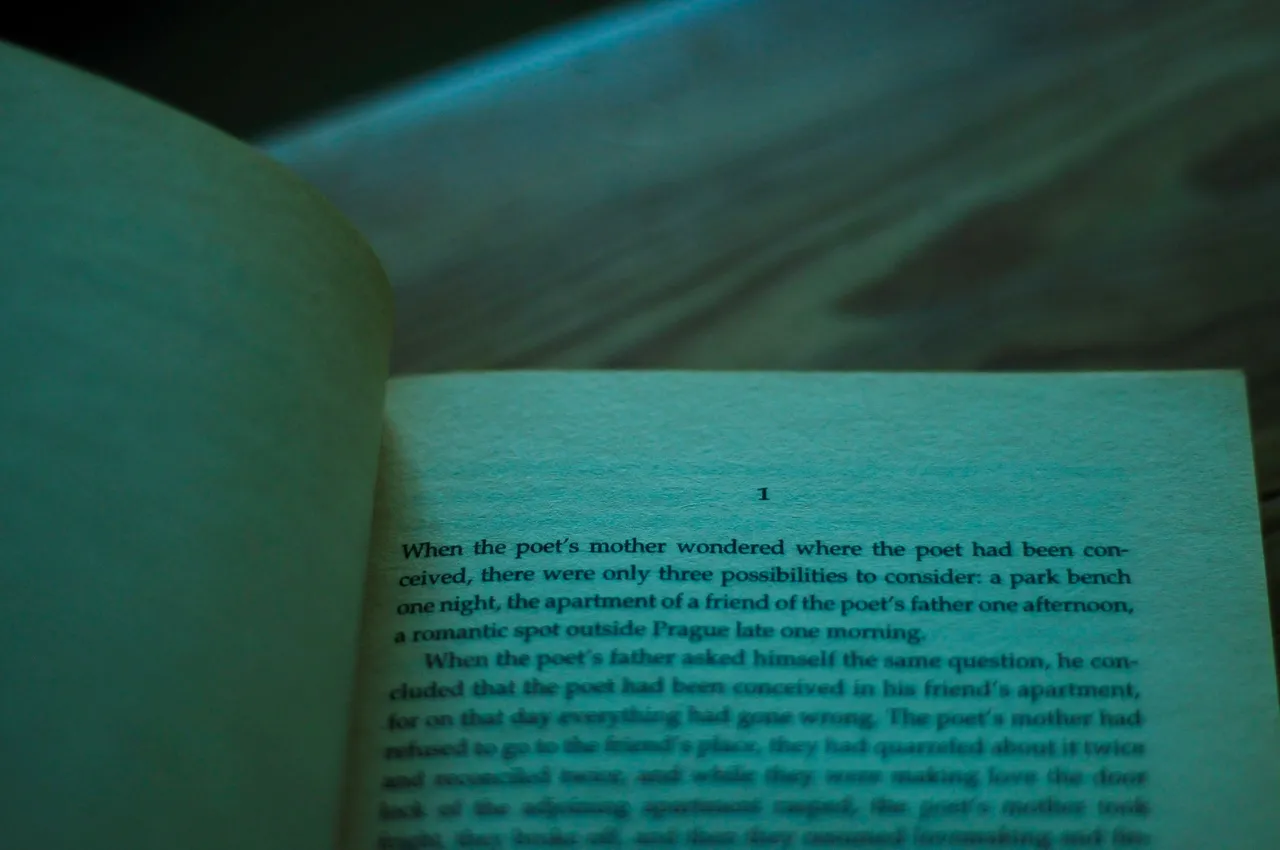
This does not take away from the value of the work. Kundera writes with extreme sensitivity, adding nuanced details that can easily be overlooked.
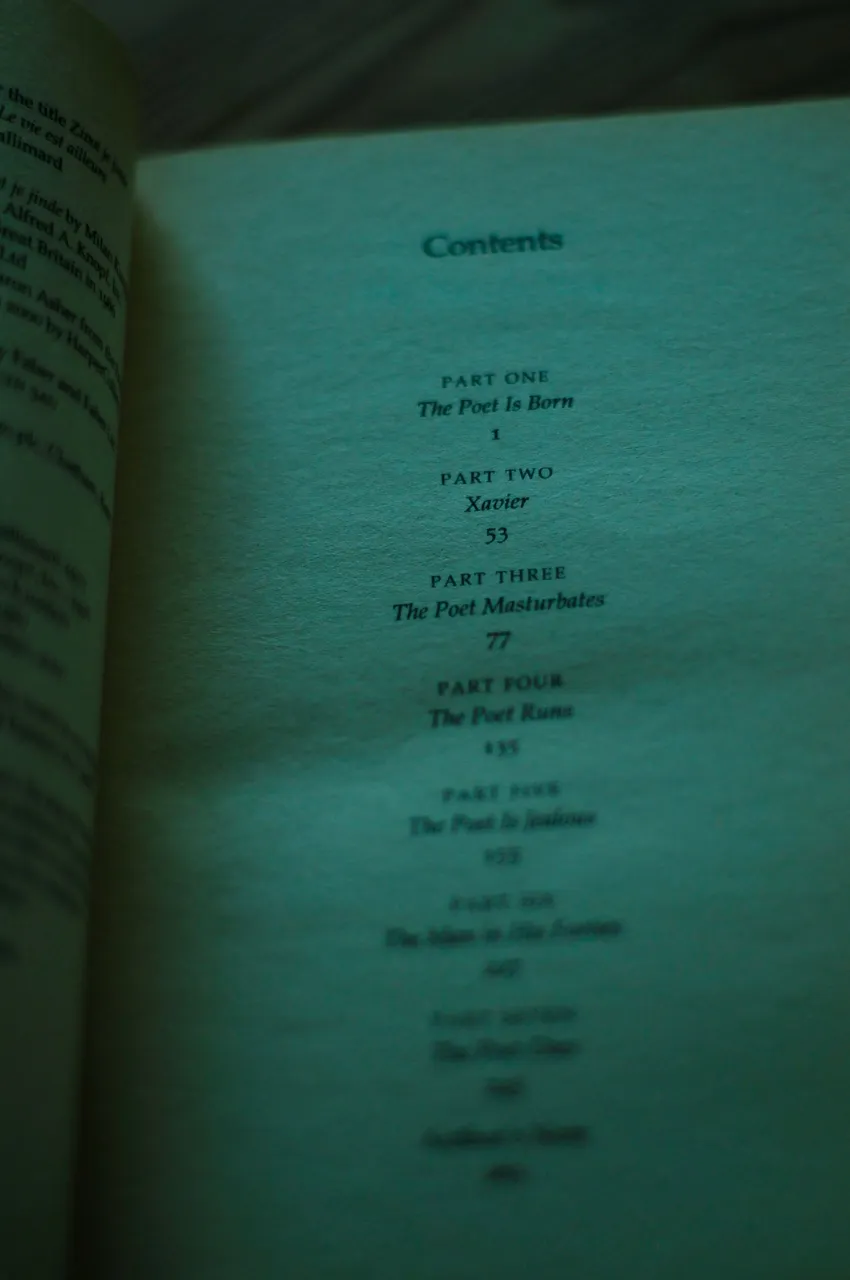
The passage quoted above (hyperlinked, but on page 89 of my copy) has stuck with me due to the nature of my own research, but also because it illustrates the poetic nature of Kundera's writing. The weight of the writing and the book makes it a thorough joy to read for those who appreciate poetic writing, colourful writing, and philosophical writing.
This work, and I think all of Kundera's work, will only appeal to certain readers. Modern readers might not find the work appealing and interesting, especially the middle part of the book which deals with various historical issues - which as I alluded to above, I am not well versed in.
Besides this, the work delves into problems even contemporary readers who venture into the book might still find relatable - such as, in group fighting, identity issues due to political affiliations, and problems of such nature.
But what interested me about this book is the poet's journey, from childhood through to adulthood. The mixture of poetry and coming of age, exploration of art and politics, was really fascinating and interesting. But there was one thing that did not really sit well with me as the reader, especially as a modern reader.
The Misogynist Poet Discovers His "Hatred" for Women
While most would say that authors writing in periods when certain things were the norm (think slavery in previous eras) are only products of that time, it does not make the act morally permissible. And while Kundera's work, especially in this novel, does have some reprehensible acts in it, one must not too hastily jump on the wagon that Kundera himself was misogynistic or sexist.
I am not a Kundera scholar, and I am not well versed in his other work (yet), but it was striking how much hatred there was toward women in the poet. Therefore, one can make the argument that we should restrict this aspect to the poet and not the author.
If we take this to be the case, the only thing we can really say for sure, is that the poet was not a good person in any sense of the word when it comes to women. These scenes, especially read today, strike one with a certain force and it makes one feel uncomfortable. What the intention of the author was here, we can only speculate, but it does alienate the reader a bit from the poet. At least that is how I felt. While reading these passages, I constantly hoped that something bad would happen to the poet, but nothing of this kind happened. But the distance created by Kundera writing from a god-like perspective further alienates the reader, which leaves one feeling that the characters in the book are stuck and that they cannot change, free will is absent and that everything is determined in advance.
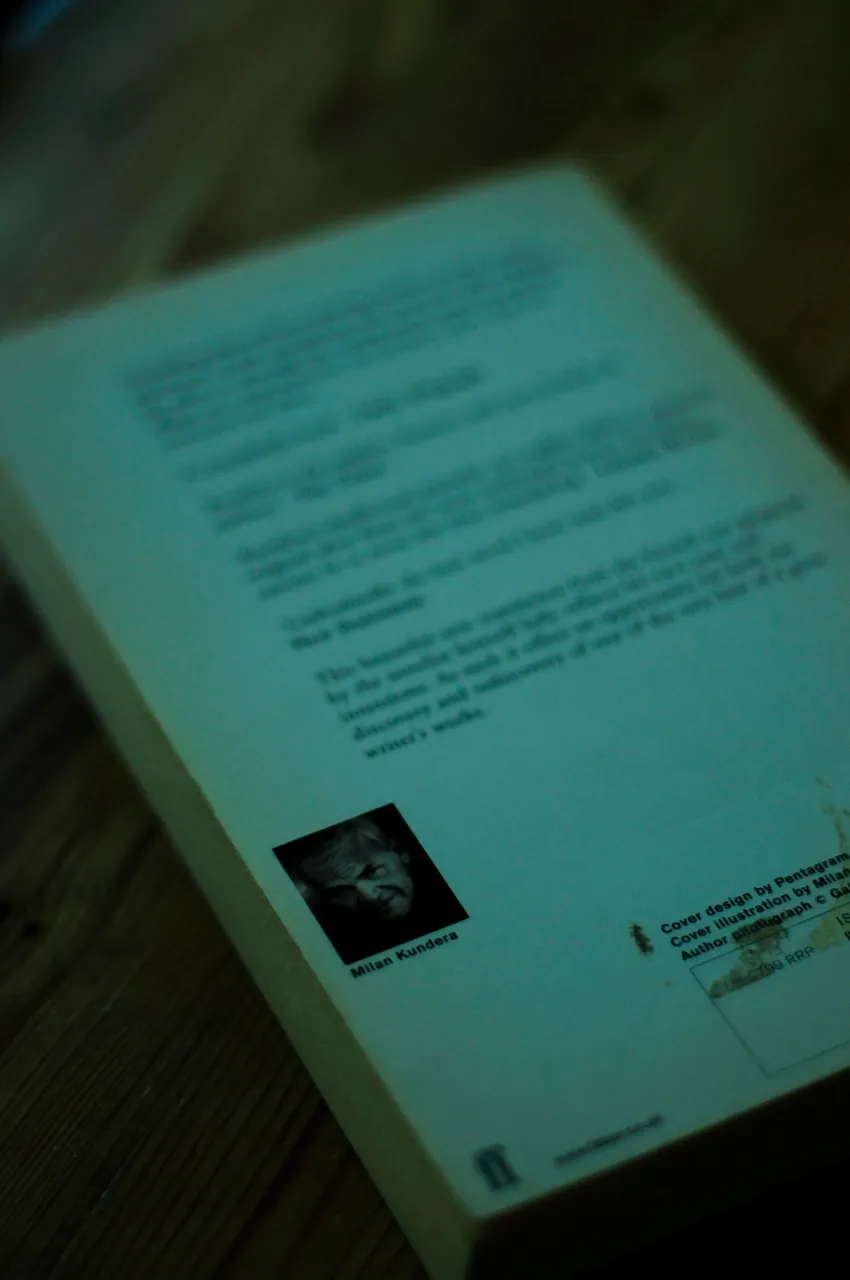
Postscriptum, or the Poetic Brillance, Question Mark...
When I picked up the book initially, I was struck by the poetic brilliance and the beauty of Kundera's style and mind. I am sure that when I go deeper into the work of Kundera, this same brilliance will shine through. But I was also a bit alienated by the world in which he threw us, the misogynistic elements, the way he depicts male characters... (Many of these writers, think Charles Bukowski and the likes suffer from this problem. Should we cast them away due to this? This is the open philosophical question. Think also Martin Heidegger and his affiliation to the Nazi party...) But the philosophical and poetic elements are the ones that really captured my attention, that kept me reading even through the World War 2 scenes of politics and affiliation to parties.
This was really one for the books, a (modern) classic for the poet and artist to read.
Even if only for the first chapter which is beautifully written and rich with ideas and moments.
I hope that you will pick up this classic, and that my musings made some sense in terms of the novel!
Happy reading and keep well.
All of the musings and writings are my own, unless stated otherwise and hyperlinked. The photographs are also my own, taken with my Nikon D300.
The Fermented Philosopher's Library
| 🕮 The Book of Malachi | 🕮 The Outsider | 🕮 A Clockwork Orange | 🕮 Perfume |
|---|---|---|---|
| by T.C. Farren | by Stephen King | by Anthony Burgess | by Patrick Suskind |
| 🕮 The Uninvited |
|---|
| by Geling Yan |
